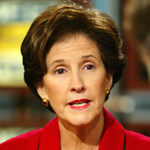
China, the world's third-largest economy, faces an "arduous task" in maintaining steady growth and a stable society, President Hu Jintao (pictured left) said, as the ruling communist party prepared to mark 60 years in power. "Ensuring and improving the people's livelihood as well as the mission of maintaining a stable society are arduous tasks as we face the impact of the global economic crisis," Hu said, who was speaking at an event to mark the founding of the Chinese People's Political Conference in Beijing today. Hu also spoke about the importance of national unity. China will mark the founding of the People's Republic in 1949 on Oct. 1 as the government helps fuel a recovery from the deepest global recession since World War II with a $586 billion stimulus plan. Beijing is also battling ethnic tensions in its Xinjiang region, where riots in July killed almost 200 people. – Bloomberg
Dominant Social Theme: An arduous task?
Free-Market Analysis: Here are the Bell, we have made points about China for several years that are gradually trickling into the mainstream, not because of our influence (we'd like to think so) but because Chinese leaders are saying basically the same thing. We recently reported on this phenomenon, but now comes China's President Hu Jintao to repeat it. Since Hu is Chinese and the head of the communist party, the language Hu uses is dense and purposefully vague. We'll unpack it for you. Here's some more from the article:
The international financial crisis has had a great impact, and national competitiveness has become more intense and there are more unstable and uncertain factors," Hu said.
China's gross domestic product grew 7.9 percent in the second quarter, up from 6.1 percent in the three months through March. GDP growth slowed to 9 percent for 2008 from 13 percent in 2007. The nation's 4 trillion yuan ($586 billion) stimulus plan, announced in November last year, runs through 2010.
China's target of 8 percent growth in gross domestic product this year, while "difficult," is attainable, China News reported yesterday citing Yao Jingyuan, chief economist at the National Bureau of Statistics.
The country is in the "critical phase" of ensuring economic growth, China National Radio reported Sept. 18, citing the Fourth Plenary Session of the 17th Communist Party of China Central Committee.
Ensuring stable growth is government's top priority as the global economic recovery is expected to be slow, the radio reported. Curtailing ethnic unrest and a rise in protests nationwide has also become a priority for the Chinese government as it prepares to elevate a new generation of leaders who will begin to take office in 2012.
The party must crack down on "separatist forces" that are plotting to create schisms between the nation's 56 major ethnic groups, state broadcaster China Central Television reported on Sept. 18.
In the first half of the year, the number of demonstrations, riots, and strikes nationwide rose for the first time since 2005, Outlook, a magazine affiliated with the official Xinhua News Agency, reported in early September, without giving specific figures. The "rise in incidents involving more than 500 people is worthy of heightened vigilance," the article said.
We've pointed out in the past that the Chinese have several challenges ahead of them. First, the country's growth rate is absurdly high at 8-10 percent per annum. Probably no one really knows as we doubt the Chinese statistical record-keeping is very efficient, especially give the mass of people in China, some 1.3 billion. Because the growth is evidently high, one would tend to believe that the Chinese have been flooding their own country with currency, creating an artificial boom that has lasted about 25 years without much interruption. This is probably the mother of all bubbles.
The Chinese have no choice but to keep stimulating because of the uneasy balances of ethnicities that demand material progress and the roughly 400 million rural citizens who have not benefited yet from China's boom. The situation is further complicated by the downturn in the world's economy, which means that the Chinese must look to their own economy for the growth they need to keep a lid on protests.
The balance that the communist party in China has struck with citizens is fragile indeed. Chinese citizens are to receive material benefits in return for tolerating the communist government's continued existence. Of course, it is doubtful now what is actually communist about the communist government. True, it appoints the country's government hierarchy but increasingly the appointments and command structure look more the historical China – drop an emperor into the slot currently dominated by the Chinese leadership council and you probably wouldn't skip a beat.
Hu of course is highly aware of all of the above. When he speaks of a "critical phase" of ensuring growth, he is speaking of the task of continuing Chinese growth internally instead of externally. When he says that the country must crack down on separatist forces, he is speaking about the potential failure of the compact to provide material wealth in return for political inactivity.

We personally believe that the Chinese will be able to "manage" growth until such time as the national economic bubble implodes. And then there will be hell to pay. Not only will the rural Chinese feel cheated, having never gotten their piece of the pie, but those who have experienced benefits will feel that they have been silent in the face not only of political mismanagement but also of economic mismanagement. The Chinese have had at least eight bouts of fiat money madness in their 6,000 (or so) year history. At one point, fiat money was even banned. When the storm breaks we fully expect that the Chinese will revert to some sort of gold and silver standard as they have in the past.
